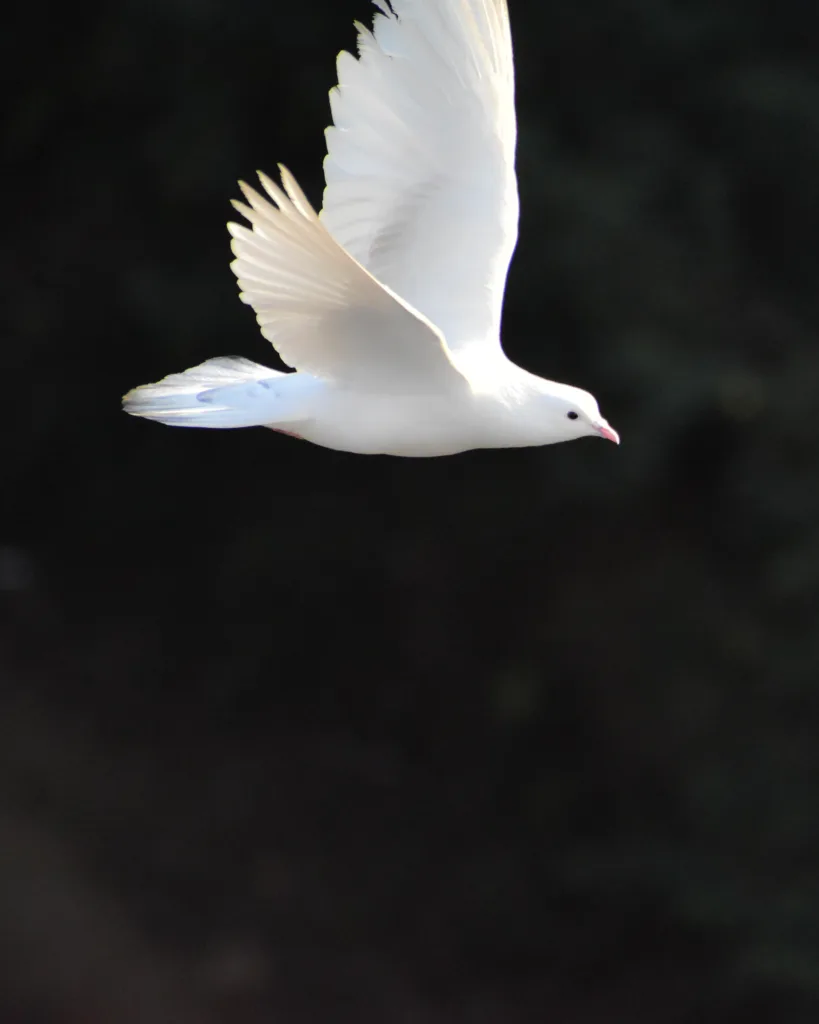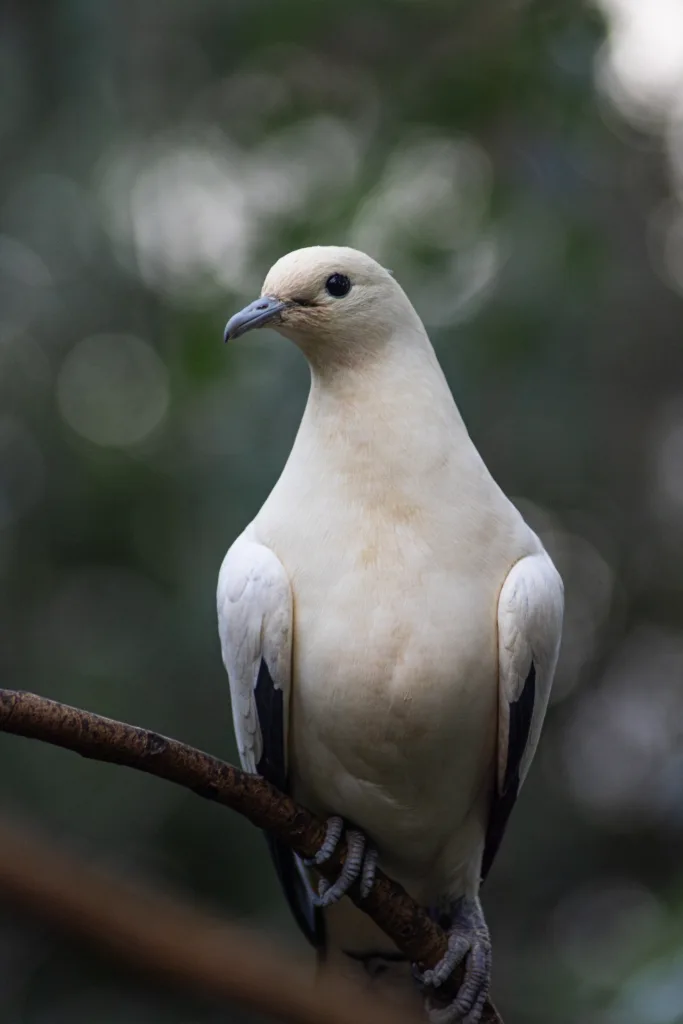Doves are fascinating and beautiful birds that are found all around the world. These birds are known for their unique cooing sounds and their gentle nature, which has made them a popular pet species. However, in the wild, doves have a much different life than their captive counterparts. One of the most interesting aspects of these birds is their lifespan. In this article, we will explore how long doves live in the wild and in captivity.
In captivity, mourning doves can live for up to 20 years. This is a significant difference from their wild counterparts, who have an average lifespan of less than two years. The reason for this difference is due to a combination of factors, including access to food, shelter, and protection from predators. In captivity, doves have a steady supply of food, a safe and comfortable environment, and protection from predators, which alows them to live longer.
However, in the wild, the average lifespan of a mourning dove is much shorter. These birds are preyed upon by a variety of predators, including hawks, owls, and snakes, which makes it difficult for them to survive for long periods. Additionally, they face other challenges such as disease, harsh weather conditions, and territorial disputes with other birds, which can also reduce their lifespan.
Despite these challenges, some mourning doves have been known to live for up to five, seven, or even 10 years in the wild. However, these cases are rare, and most doves will only live for a couple of years before succumbing to the challenges of the wild.
It is interesting to note that mourning doves are monogamous and will often mate for life. If one of the pair dies, the surviving dove may mourn the loss of their partner. This behavior has been observed in captivity and in the wild, and it suggests that these birds have a strong emotional bond with their partners.
The lifespan of a mourning dove varies depending on whether they are in captivity or the wild. In captivity, these birds can live for up to 20 years, while in the wild, their lifespan is usually less than two years. Despite facing numerous challenges in the wild, some mourning doves can live for several years, and they exhibit strong emotional bonds with their partners. These birds are truly fascinating creatures that remind us of the beauty and fragility of nature.
Average Lifespan of a Dove in Captivity
In captivity, mourning doves have the potential to live up to 20 years. This is a considerably longer lifespan compared to their wild counterparts, whch typically only live for less than two years. With their high fecundity rate, the population of mourning doves in captivity can easily grow to an overwhelming number, but predators make it difficult for them to thrive in the wild.
It is important to note that the lifespan of mourning doves can vary depending on their living conditions, diet, and overall health. Proper care and nutrition can contribute to a longer lifespan in captivity.
Here are some factors that can affect the lifespan of mourning doves in captivity:
– Diet: Mourning doves need a well-balanced diet that includes seeds, grains, and insects to maintain their health and longevity.
– Living conditions: Doves need a spacious and clean living area that is protected from extreme temperatures and predators.
– Health care: Regular check-ups with a veterinarian can help prevent and treat any health problems that may arise.
If provided with proper care, mourning doves can have a long and healthy life in captivity.

Average Lifespan of a Wild Dove
Mourning doves are a common bird species found in the wild. If you are wondering about teir lifespan, you will be interested to know that adult mourning doves typically live for about two years in their natural habitat. They belong to the Columbidae family and are known for their gentle and peaceful nature.
That being said, some mourning doves have been known to live longer than two years. There have been cases where they have lived up to five, seven, and even up to 10 years. The lifespan of a mourning dove can be influenced by various factors such as food availability, predators, diseases, and environmental conditions.
It is important to note that young mourning doves have a lower survival rate compared to adults. They are vulnerable to predators and can easily fall prey to harsh weather conditions. However, those who make it past their first year have a higher chance of living longer.
While the average lifespan of a mourning dove in the wild is two years, there have been recorded cases of them living up to 10 years. Their lifespan can be influenced by various factors, and young birds have a lower survival rate compared to adults.
Average Lifespan of a White Dove
White doves have an average lifespan of 10-15 years in the wild. However, in captivity, some have been knwn to live up to 25 years. The lifespan of a dove can be affected by various factors such as habitat, diet, and genetics.
In terms of habitat, doves living in urban areas may have a shorter lifespan due to exposure to pollutants and other environmental factors. Additionally, a poor diet can also impact a dove’s lifespan. Doves primarily feed on seeds and grains, and a lack of these nutrients can lead to health issues and a shorter lifespan.
On the other hand, genetics can also play a role in a dove’s lifespan. Some doves may simply be predisposed to live longer due to their genetics.
It’s important to note that while doves can live relatively long lives, they are still vulnerable to predation and other threats in the wild. In captivity, proper care and nutrition can help extend a dove’s lifespan.
The average lifespan of a white dove is 10-15 years in the wild and up to 25 years in captivity. Factors such as habitat, diet, and genetics can all impact a dove’s lifespan.
Do Doves Maintain Life-Long Mating Relationships?
Doves are a unique species of birds that have always fascinated humans with their remarkable behavior. One of the most intriguing aspects of dove behavior is their mating habits, which vary depending on the species.
Some doves, such as the turtle dove and mourning dove, are monogamous and will mate for life. Once they have found a mate, they will stay together for the rest of their lives and will only look for another mate if their partner dies. These doves are extremely loyal to their partners and will often defend them against other birds or predators.
On the other hand, some doves, such as the collared dove and rock dove, are not monogamous and will only pair up for the breeding season. Once the breeding season is over, they will go their separate ways and will not reunite until the next breeding season.
Interestingly, if one partner of a monogamous pair dies, the surviving dove may mourn the loss of its partner. It is believed that they will exhibit behaviors such as decreased appetite, increased lethargy, and a general sense of sadness. However, in most cases, the dove will eventually find another mate and move on.
While not all doves mate for life, some species do exhibit monogamous behavior and will stay with their partner for the rest of their lives. Regardless of their mating habits, doves are fascinating birds that continue to captivate our attention with their unique behaviors.

Conclusion
Doves are fascinating and beautiful birds that have captured the hearts of many people around the world. They are known for their gentle cooing, graceful flight, and monogamous relationships. Doves have a relatively short lifespan in the wild, but can live up to 20 years in captivity. Despite their fecundity, predators make it difficult for their population to grow out of control. It is interesting to note that some doves mate for life and may mourn the loss of their partner. doves are a wonderful addition to any environment, whether in the wild or in captivity.
